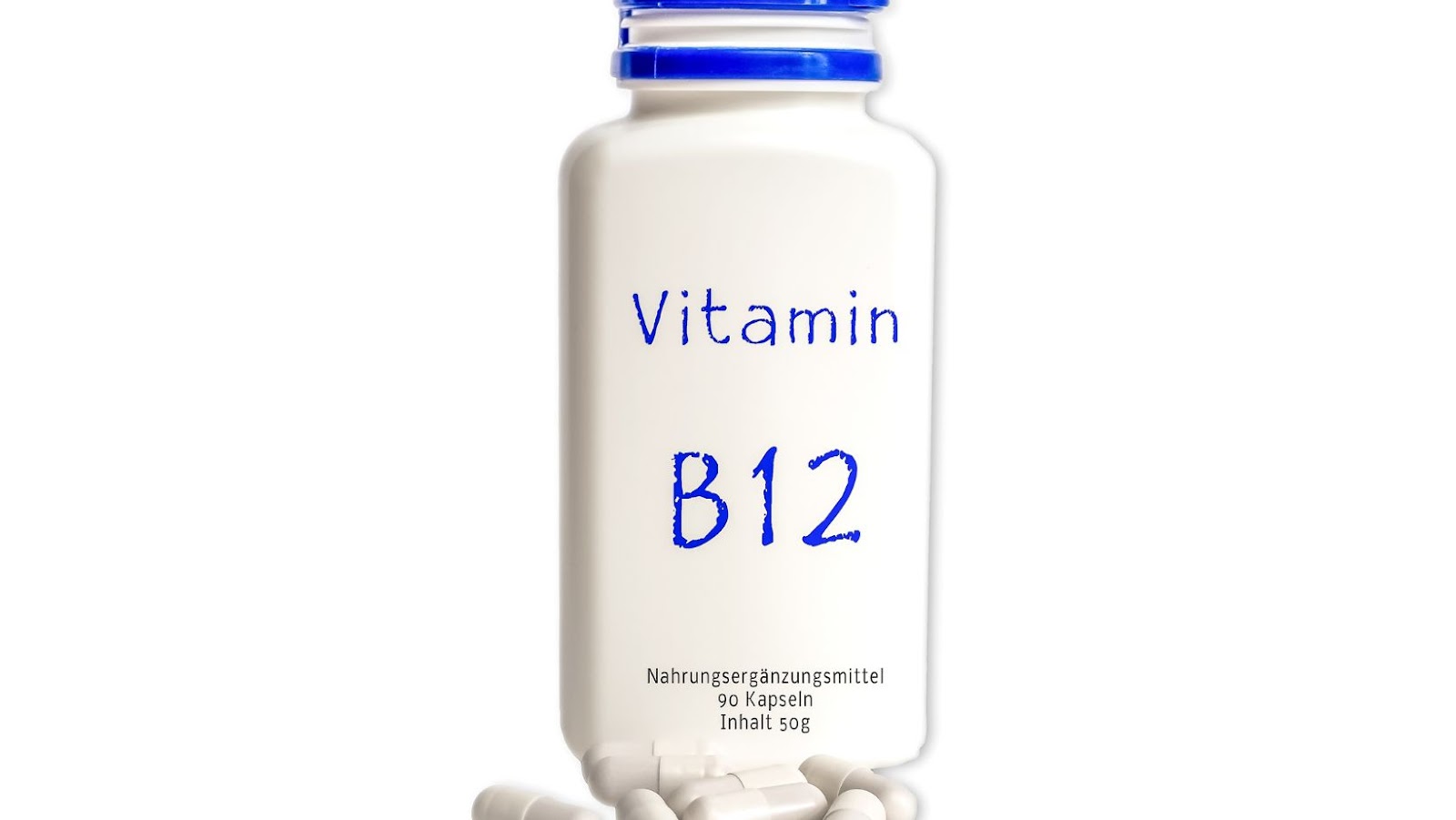Taking B12 during pregnancy can be safe, but it is not without potential risks.
Here are some risks associated with taking B12 during pregnancy:
|
Risk |
Description |
|
Allergic reactions |
Some people may experience allergic reactions to B12 injections or supplements. |
|
Interaction with other medications |
B12 supplements may interact with certain medications, such as metformin, used to treat gestational diabetes. |
|
Misidentification of anemia |
Taking B12 supplements may mask the symptoms of folate-deficiency anemia, which is more common during pregnancy. |
It is essential to consult a healthcare provider before taking any B12 supplements during pregnancy to ensure appropriate dosing and minimize potential risks.
Can You Take B12 While Pregnant
Vitamin B12 is essential for maintaining a healthy body during pregnancy and can be found in animal sources such as eggs, dairy products, and meat. B12 deficiency during pregnancy can have varying health consequences, ranging from mild to severe.
In this article, we will look at the potential risks of B12 deficiency during pregnancy.
The Impact of B12 Deficiency on Fetal Health
B12 deficiency during pregnancy can have serious consequences on fetal health, including growth restriction, developmental delays, and neurological problems. It is important for pregnant women to ensure they are getting enough B12 in their diet or supplements to avoid these risks.
Here are some potential risks associated with taking B12 during pregnancy:
|
According to the American Pregnancy Association, B12 supplements are safe for pregnant women to take. In fact, supplementing with B12 can help prevent birth defects and support the healthy development of the fetus. |
|
However, it is important to consult with a healthcare provider before taking any supplements during pregnancy, as excessive intake of B12 can also have adverse effects. |
|
Maintaining a balanced and nutritious diet during pregnancy is the best way to ensure adequate B12 intake. Foods high in B12 include eggs, dairy products, meat, fish, and fortified cereals. |
The Risk of Neural Tube Defects
Neural tube defects are serious birth defects that may occur due to inadequate intake of vitamin B12 during pregnancy. B12 is essential for the proper growth and development of the fetal brain and nervous system.
Some of the potential risks of B12 deficiency during pregnancy include:
|
Risks |
|
Neural tube defects like spina bifida and anencephaly |
|
Premature birth |
|
Miscarriage |
|
Low birth weight |
It is crucial to get adequate amounts of B12 during pregnancy, either through your diet or supplements. Pregnant women should aim for at least 2.6 mcg of B12 per day. Talk to your doctor if you have a history of B12 deficiency or are following a vegetarian or vegan diet, which may put you at a higher risk of deficiency.
The Role of B12 in Red Blood Cell Production For Pregnant Women
B12 is a vital nutrient in the production of red blood cells and has a significant impact on the health of pregnant women and their growing fetuses. B12 deficiency during pregnancy can lead to several risks for the baby, including developmental delays, neural tube defects, premature birth, and low birth weight. Pregnant women should consume 2.6 micrograms of B12 per day to support a healthy pregnancy. Good dietary sources of B12 include meat, dairy products, and eggs. Vegetarians and vegans may need to take B12 supplements.
Taking B12 supplements during pregnancy does not appear to carry any significant risks. However, it’s crucial to talk to your doctor before starting any supplement regimen during pregnancy to ensure it’s safe for you and your baby. Pro tip: Get your B12 levels checked during pregnancy to prevent any deficiencies or potential risks.

Risks Posed by High Doses of Vitamin B12 During Pregnancy
Vitamin B12 is an essential nutrient and can be beneficial during pregnancy, but taking too much of it can be risky. While taking the recommended daily allowance (RDA) of approximately 2.6mcg can be beneficial, exceeding this amount can pose a number of risks.
This article will delve into the potential risks associated with taking high doses of Vitamin B12 during pregnancy.
Overcoming Concerns About Overdosing on Vitamin B12
Vitamin B12 is a crucial nutrient required for healthy nerve function, blood cell production, and DNA synthesis. While it is essential for pregnant women to get enough vitamin B12, consuming high doses can lead to concerns about overdosing.
The good news is, vitamin B12 is water-soluble, which means that the body will excrete any excess through urine, minimizing the risk of harmful side effects. However, it’s still crucial to be mindful of your B12 intake during pregnancy, as high doses have been associated with an increased risk of autism in children. Pregnant women should aim to get their recommended daily intake of 2.6 mcg of vitamin B12 through a well-balanced diet or supplements as prescribed by a healthcare professional.
Pro Tip: When in doubt, always consult with your healthcare provider or a registered dietitian to ensure you’re getting the right nutrients for a healthy pregnancy.
A Study Contradicts Previous Concerns About Excessive Levels Of Vitamin B12 Leading To Autism In Children
A recent study has found that there is no evidence to support the previous concerns of a link between high levels of vitamin B12 during pregnancy and autism in children. While it is essential to maintain adequate levels of vitamin B12 during pregnancy, excessive doses may not provide additional benefits and may even have adverse effects. Some of the risks associated with taking high doses of vitamin B12 during pregnancy include nerve damage, diarrhea, and rashes. However, these risks are rare and occur mainly in cases where doses exceed the recommended levels. Therefore, it is essential to consult a doctor before taking any prenatal supplements and follow the recommended dosage.
Adequately maintaining and monitoring vitamin B12 levels during pregnancy can help promote healthy fetal development and prevent potential health risks.
Understanding The Concerns About High Folate And B12 In Pregnant Women
While taking Vitamin B12 supplements during pregnancy is safe and even recommended to prevent deficiencies, high doses of B12 can pose risks to both the mother and the developing fetus.
|
Concern |
Description |
|
Masking of B12 Deficiency |
High levels of folate in the body can mask the symptoms of a Vitamin B12 deficiency, which is especially concerning during pregnancy since a B12 deficiency can cause severe harm to the fetus. |
|
Increased Risk of Autism |
Studies have shown that high levels of Vitamin B12 during pregnancy may increase the risk of autism and other developmental disorders in the offspring. |
|
Inadequate fetal growth |
Consuming too much B12 can lead to inadequate fetal growth and development, low birth weight, and other complications during pregnancy. |
Pro Tip: It’s important to keep your B12 and folate levels in check during pregnancy through a balanced diet and prenatal supplements prescribed by your doctor. Avoid taking any additional supplements without consulting your healthcare provider.
When Is It Safe To Take B12 During Pregnancy?
Taking B12 supplements during pregnancy can be beneficial for the fetus, but it is important to be aware of the potential associated risks as well. While B12 is generally considered a safe supplement to take during pregnancy, it is important to discuss any potential risks with your doctor before taking it.
This article will go into detail about the potential risks and benefits of taking B12 while pregnant.

The Recommended Daily Amount Of B12 During Pregnancy
The recommended daily amount of B12 for pregnant women is 2.6 micrograms per day. Vitamin B12 is an essential nutrient that helps to support healthy brain and nervous system function and aids in the production of red blood cells. It is generally safe for pregnant women to take B12 supplements as long as they are taken in the recommended amounts. However, it is important to consult with a healthcare provider before starting any new supplements during pregnancy.
While there are no known risks associated with taking B12 during pregnancy, it is still important to follow the recommended daily amount and to choose a reputable brand of supplements. Pregnant women who follow a vegetarian or vegan diet may be at higher risk for B12 deficiency and may need to take additional supplements.
Pro tip: In addition to taking supplements, pregnant women can also increase their B12 intake by eating foods such as meat, fish, eggs, and dairy products.
The Levels Of B12 In A Typical Prenatal Vitamin
B12 is a crucial vitamin for pregnant women, as it aids in developing the baby’s nervous system and producing healthy red blood cells.
Prenatal vitamins usually contain around 2.6 μg of B12, which is sufficient for most pregnant women. However, it is always recommended to consult with your doctor or a nutritionist to determine if you need additional B12 supplementation based on your individual needs.
While B12 is generally safe to take during pregnancy, excess intake can cause certain side effects such as itchiness, mild rash, anxiety, and diarrhea.
It is crucial to follow the recommended dosage of B12 intake and avoid taking high doses without a doctor’s supervision.
How To Consult Your Doctor Before Taking B12 During Pregnancy
Consulting your doctor before taking B12 supplements during pregnancy is crucial as it affects the health of both you and your growing baby. Here are some questions you may want to ask your doctor before taking B12 supplements:
|
1. Is it safe to take B12 supplements during pregnancy? |
|
2. What is the recommended dosage of B12 during pregnancy? |
|
3. What are the benefits of taking B12 during pregnancy? |
|
4. Are there any risks associated with taking B12 supplements during pregnancy, and how can they be avoided? |
|
5. Can I get enough B12 from my diet, or do I need to take supplements? |
These are the primary questions you should ask your doctor before taking any B12 supplements during pregnancy. It is essential to follow your doctor’s advice for the health of you and your baby.
Pro Tip: Always consult your doctor before taking any supplements during pregnancy, as certain vitamins and minerals can harm both you and your growing baby if taken in excess.
